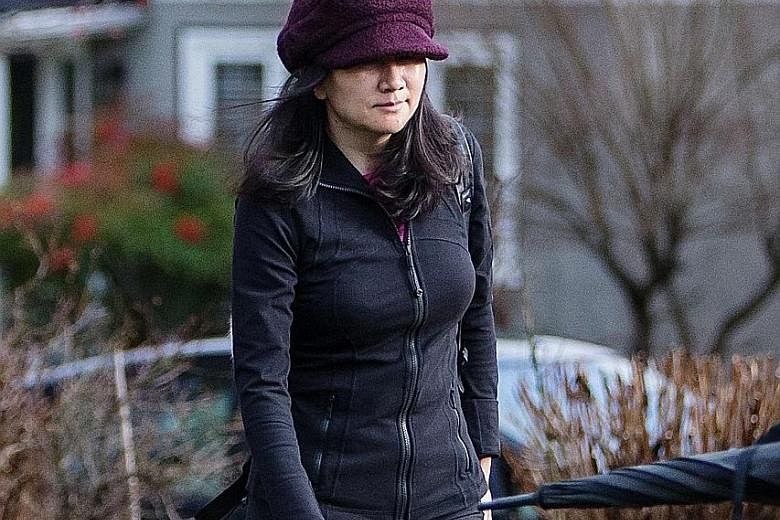China has warned the United States against proceeding with the extradition of Huawei chief financial officer Meng Wanzhou, threatening action if it does.
China's foreign ministry spokesman Hua Chunying issued the warning at a regular press briefing yesterday after news broke that Washington intended to file an extradition request for Ms Meng, who is currently under house arrest in Canada.
"China will of course take action in response to measures taken by the US," Ms Hua said.
"Everyone has to be responsible for their actions and I think the same is true for a country. We hope both Canada and the US will recognise the serious nature of this incident and take steps to correct their mistakes."
Ms Hua said both the US and Canada have abused the bilateral extradition treaty between them and called on Washington to "immediately rectify its mistake" and not issue a formal extradition request to Ottawa.
Ms Meng's arrest was "plainly aimed at putting unreasonable pressure on China's high-tech enterprises", she added.
Beijing's latest salvo worsens the already strained ties between China and Canada, which arrested Ms Meng on Dec 1 at Vancouver airport following a request from the US.
In what was seen as retaliation, China later detained two Canadians - former diplomat Michael Kovrig and businessman Michael Spavor - on the grounds that they violated the country's national security.
Shortly afterwards, another Canadian was sentenced to death on drug charges after an appeal by prosecutors.
On the sidelines of the World Economic Forum in Davos yesterday, Huawei chairman Liang Hua said the company will call for a quick resolution of Ms Meng'scase.
He added that the company would allow foreign officials to visit its labs, as the Chinese company faces suspicion from Western countries that its telecoms equipment could be used for espionage.
The US wants to extradite Ms Meng so she can face charges for violating US sanctions against Iran.
Canada's Globe and Mail reported yesterday that Washington had informed Ottawa of its intention to proceed with a formal extradition request, which it has to file by Jan 30.
The report said Canada's Ambassador to the US David MacNaughton met several times with senior White House and US State Department officials about Ms Meng's case, during which he expressed Ottawa's anger and resentment with it.
"We do not like that it is our citizens who are being punished," Mr MacNaughton said. "(The Americans) are the ones seeking to have the full force of American law brought against (Ms Meng) and yet we are the ones who are paying the price. Our citizens are."
After a formal request for extradition from the US, a Canadian court has 30 days to decide whether it complies with the treaty. Canada's Minister of Justice will have to issue a formal order for extradition.
But Ms Meng will have several opportunities to appeal and this could delay any final decision for months or years, reported the Globe and Mail.
The newspaper also published an article on Monday by a former Canadian spy chief, who said Ottawa should ban Huawei from supplying equipment for its next-generation telecoms networks, citing security concerns.
Separately, on Monday, over 140 former diplomats and scholars from various countries issued an open letter to Chinese President Xi Jinping, calling for the release of Mr Kovrig and Mr Spavor.
The signatories wrote that Mr Kovrig was the North-east Asia expert for the International Crisis Group, an NGO whose mission was to "build a more peaceful world". Mr Spavor, they said, had worked to build links between North Korea, China, the US and Canada.
"However, Kovrig's and Spavor's detentions send a message that this kind of constructive work is unwelcome and even risky in China," said the letter.
Ms Hua called the former Canadian spy chief's claims "nonsense", and said that the open letter showed "disrespect" for Chinese law.

